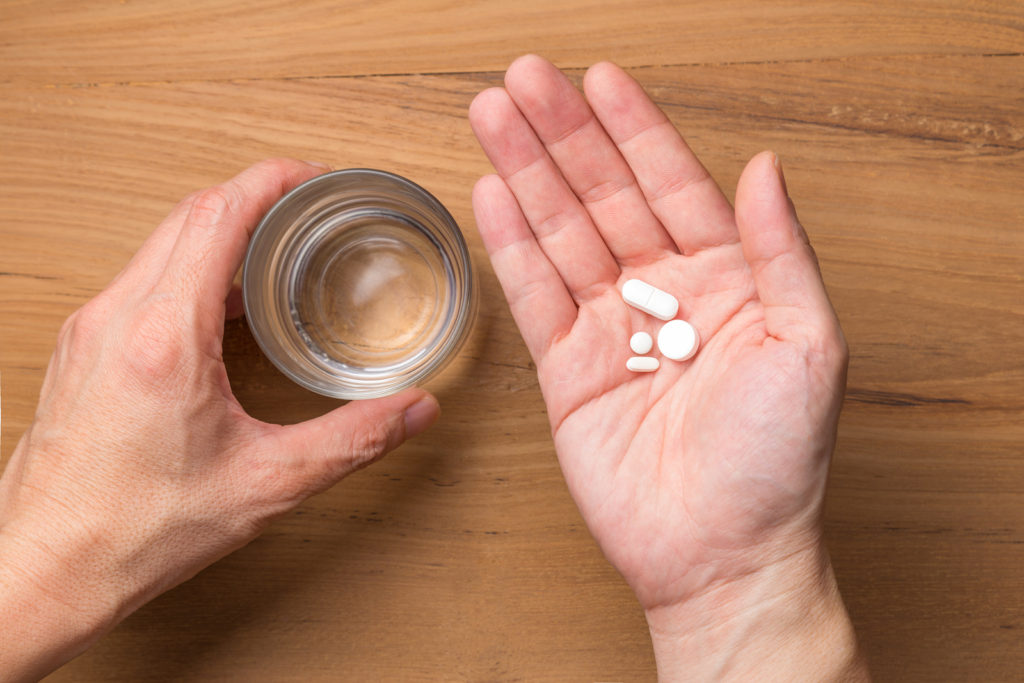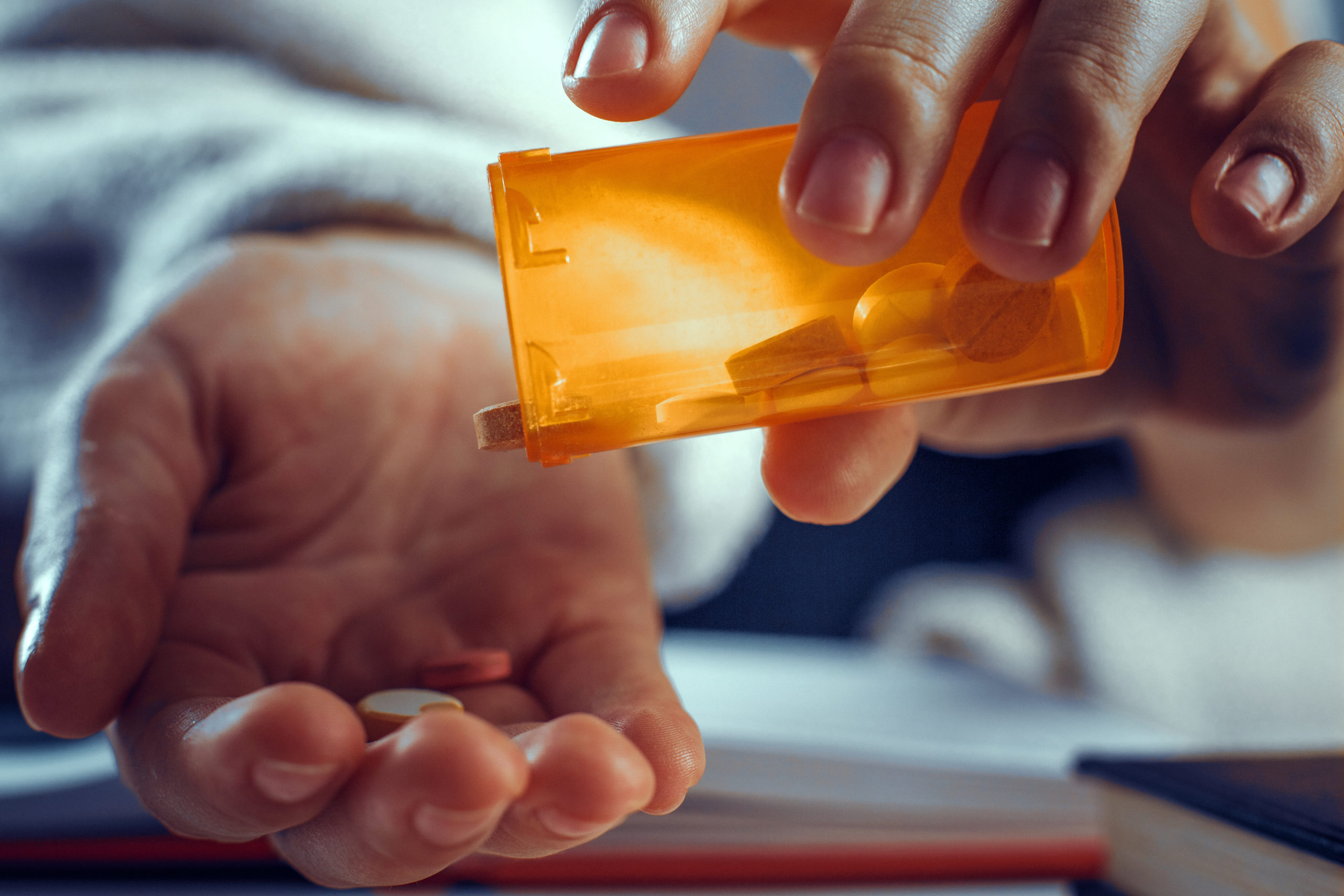Any medication that you can purchase without a prescription from a physician is an over-the-counter medicine. OTC medications include athlete’s foot cream, ibuprofen, and many other items many people already have in their homes. These nonprescription medicines are typically safe when used as directed on the packaging or with the guidance of our physician.
The problem is when people begin abusing these medications and using them to ease their symptoms with a higher dosage or when they use them for recreation instead. The United States has the Food and Drug Administration (FDA) to oversee all medicines and to determine whether or not they are both effective and safe.
What is an Over-The-Counter Drug?
Over-the-counter drugs are any medicines that you can purchase without a prescription from a doctor. Any time you go to your local pharmacy or supermarket and purchase cold medicine, ibuprofen, and many more items, you are purchasing an OTC drug.
There are many types of nonprescription medicines you can purchase, from pills to help with migraines or allergies to creams for itchiness and fungus. Having access to these medicines is great as it allows people to manage their healthcare in a more personal way. This makes it crucial that you follow the instructions on the packaging, as the dosage is based on weight and age, meaning you should not have to adjust the dosage.
There are some items that you buy in the pharmacy that are not considered OTC medicines and they are vitamins, dietary supplements, and herbal remedies. These items are only loosely monitored and regulated by the FDA.
Restricted OTC Drugs
Not all nonprescription drugs are accessed as easily as pulling a box or bottle off of the shelf and taking it to the register. There are some medications that are considered restricted by the FDA, such as human insulin, pseudoephedrine, and emergency contraceptives. With these, you do not need a prescription, but you do need to meet certain criteria in order to purchase them.
The reason for the restriction varies from drug to drug. Pseudoephedrine is restricted to prevent it from being used to create crystal meth, while emergency contraceptive Plan B One-Step was placed on this restricted list because consumers got it confused with the abortion pill.
Many of the OTC restrictions are imposed on a state-by-state basis. Many states have put restrictions on the sale of codeine, syringes, and other OTC items, while Oregon has implemented laws that require a prescription for any purchase of pseudoephedrine.

Most Common Over-The-Counter Drugs
The pharmaceutical industry in the United States made more than $35 billion in 2018 alone. Over-the-counter medicines are cheaper per dose than prescription meds, but OTC medicine sales typically surpass the annual sales of prescription drugs.
Aside from marijuana, the most commonly abused substances are over-the-counter drugs, as they are so easy to get a hold of. Not only do adults have easy access to them, but so do teens. Because many of these drugs have psychoactive effects when used in certain doses, they are misused frequently.
Dextromethorphan, or DXM, is an addictive substance found in more than 100 nonprescription cold and cough medicines. DXM can lead to sensory deprivation, impaired judgment, hallucinations, and many other dangerous side-effects. These medicines are especially popular amongst young people as they are often very easily accessible in the medicine cabinets at home.
The most commonly abused over the counter drugs include:
- Caffeine pills
- Cough and cold medicines
- Diet pills
- Laxatives
- Motion sickness pills
- Nasal decongestants
Side-Effects & Addiction Potential for Using Over-The-Counter Drugs
What can start out as fun with friends can quickly change into a nightmare. Not only is there a change of addiction, but there are also other negative side effects, including overdose and death. OTC medicines are much less potent than many other substances, but when taken in large enough doses, they can lead to many different health problems as well as addiction.
Over time, recreational use of OTC medication can change the chemistry of the brain. While the user may be able to achieve the desired effects of the drug when they first start out, over time they will build up a tolerance, which leads to needing more and more drugs to get high.
After so long, the user becomes dependent on the drug and may experience withdrawals when they cease their drug usage. This may include:
- Agitation
- Anxiety
- Confusion
- Irritability
- Mood changes
DXM, Cough Medicines
Dextromethorphan is one of the main ingredients in cough medicines. The maximum recommended daily dose is 120 mg. Beyond that, users experience hallucinations, euphoria, loss of motor coordination, out-of-body sensations, and visual distortions.
When someone takes a high dose, they can experience blacking out, blood pressure changes, breathing problems, heart palpitations, vomiting, brain damage, and more.

Cold Medicine, Pseudoephedrine
The active ingredient in most cold medicines is a stimulant called pseudoephedrine. The main purpose is to release congestion from allergies or colds, but many people use these cold medicines to make illegal street drugs such as methamphetamine. When abused, users may feel an intense body high or experience hallucinations.
Abusing pseudoephedrine can cause high blood pressure, shortness of breath, seizures, irregular heartbeat, and dizziness.
Motion Sickness Pills. Dimenhydrinate
Used to treat vertigo and motion sickness, dimenhydrinate can lead to irregular heartbeat, coma, nausea, hallucinations, seizures, and death. Most people that abuse motion sickness pills do so in order to experience the psychedelic properties of the drug.
Treatment for an Over-The-Counter Drug Addiction
Extended abuse of OTC drugs can lead to physical and mental dependence as well as uncomfortable withdrawals upon quitting. You could experience emotional, physical, or cognitive withdrawal symptoms. The best way to get through addiction is with a treatment plan.
If you or a loved one have been dealing with an OTC drug problem, there are options. Seeking help from a treatment facility could be the difference between a lifelong battle with these nonprescription drugs and being able to get clean and stay clean. In fact, seeking help in this way is the most effective way to ensure long-term recovery from an addiction as it helps one get to the bottom of why they were abusing the drug to begin with. This can help the individual learn new and healthier ways to cope with underlying emotions in the future.
If you or a loved one is struggling with an addiction, it is imperative that help be sought immediately before things become more dangerous, or even fatal, for the user. Reach out to a premier rehab facility that can walk you on the path to a better, healthier tomorrow right now.

